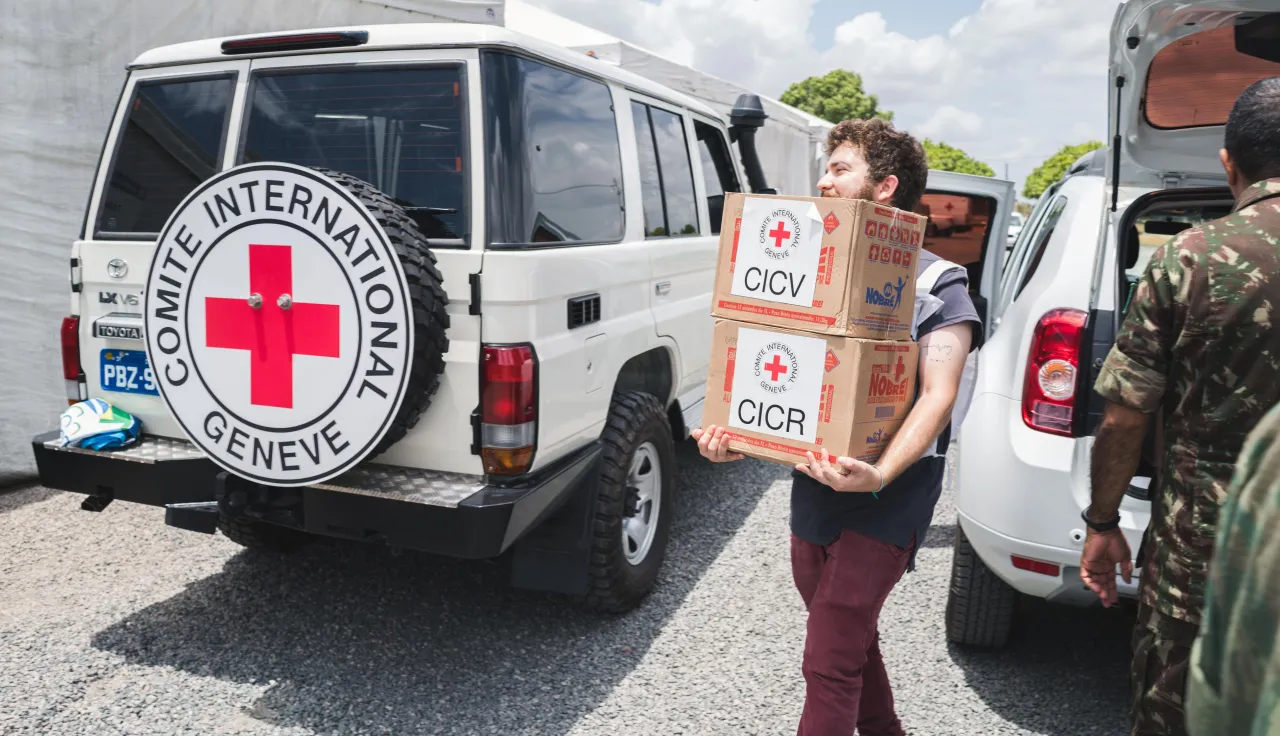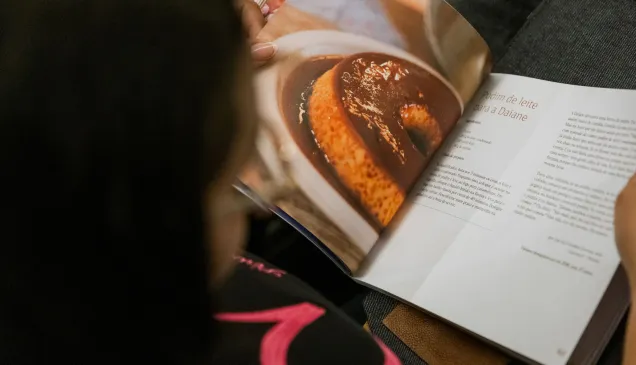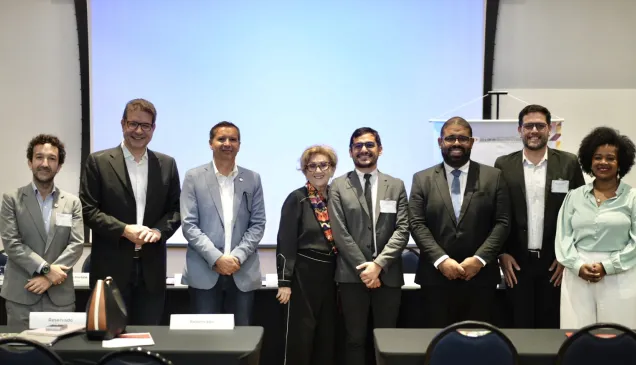Brasilia (ICRC) – The International Committee of the Red Cross (ICRC) donated personal protection, sanitary and cleaning products on Wednesday and Thursday (April 7 & 8) to the Manaus (AM) Transit Shelter and to the Hospital de Campanha da Área de Proteção e Cuidados (Protection and Care Field Hospital - APC), in Boa Vista (RR), in an effort to assist vulnerable communities battling COVID-19 in Northern Brazil.
In Roraima, last Thursday, April 9, the ICRC donated hydrated ethyl alcohol and more than 18,000 pairs of gloves for medical procedures aimed at ensuring the proper hygiene of the Field Hospital and the safety of the health professionals who will be working. The structure is being constructed by the Operação Acolhida (a Brazilian Armed Forces-led humanitarian mission in the North of Brazil) and, when opened, will have 1,200 hospital beds (with the possibility of expanding to an extra 1,000 beds if needed) for people affected by or who may have contracted the novel coronavirus. The space will also be used to care for Brazilians living in communities outside of Boa Vista.
In Manaus, the Transit Shelter houses migrants who take part in the Operação Acolhida internal socieconomic resettlement program ("interiorização"). There,migrants undergo a medical check-up before traveling to their destination cities elsewhere in Brazil. In response to the pandemic, the federal government has maintained the voluntary transfer of migrants to other regions of Brazil while reinforcing sanitary measures to prevent the spread of the novel coronavirus among this public. The ICRC donation delivered on April 8 included alcohol, bleach, detergent, and other cleaning products – enough supplies to ensure that the area is kept sanitized for three months and thus providing added safety to migrants, authorities and humanitarian workers.
The head of the ICRC office in Boa Vista, Fernando Fornaris, who also coordinates the ICRC's activities in Manaus, asserted, "It's extremely important to reinforce measures aimed at preventing the spread of the virus, which includes shelters and medical facilities. As a humanitarian organization, we have a shared responsibility with local authorities and other international organizations to protect vulnerable populations from becoming even more exposed to the pandemic. In the face of the COVID-19 crisis, humanitarian work must continue."
The ICRC office in the Roraima's capital opened in 2018. Since then, the organization has been working on projects involving access to water and sanitation, in partnership with federal, state and municipal authorities. "Access to drinking water and sanitary facilities are key in dealing with the pandemic. Constructing wells, bathrooms and sinks in community centers, indigenous communities, hospitals and schools in Pacaraima will play a crucial role in the fight against COVID-19," Fornaris added.
The ICRC's office in Roraima has also adapted the way it provides connectivity services to migrants in both Boa Vista and Pacaraima. In Manaus, the ICRC also runs a service to restore family links between migrants and their families and provides support to the Brazilian Red Cross' (CVB) first aid activities at the Interiorization and Screening Center (Pitrig).
In an effort to address the needs resulting from the COVID-19 pandemic, the ICRC Regional Delegation for Argentina, Brazil, Chile, Paraguay and Uruguay continues to carry out its humanitarian work, adapting its operations in alignment with local and global health recommendations aimed at reducing the risks of infection.
Note to editors:
- Photos of donations being delivered to the Protection and Care Field Hospital in Boa Vista (RR) can be found here. Images can be used freely, but we request that credit be given to "Benjamin Mast/ICRC";
- Photos of donations being delivered to the Transit Shelter of Manaus (AM) can be downloaded here. Images can be used free, but we request that credit be given to "Gabriely Serrão/ICRC";
- Find out more about the ICRC's activities to deal with the Covid-19 pandemic in Brazil and other countries in the Southern Cone (in Portuguese).
More information and requests for interviews
Diogo Alcântara, ICRC Brasilia, (61) 98248-7600, dalcantara@icrc.org
Sandra Lefcovich, CICV Brasília, (61) 98175-1599, slefcovich@icrc.org
WhatsApp (sign up to receive notices!): (61) 98186-2602




